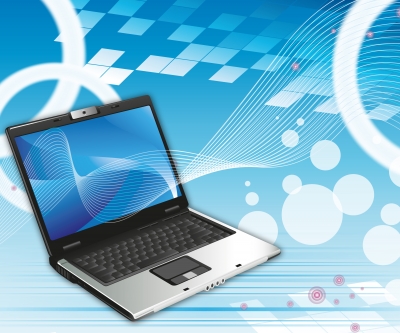E-mail and instant messaging (IM) are terrific forms of communication for keeping in touch with family, friends, and business associates. However, using them unwisely may make you and your computer susceptible to spam, phishing scams, viruses, and other online threats. Here are some tips to avoid these problems:
- Obtain comprehensive security software.Be sure that the security software you select protects you and your PC from viruses, worms, Trojans, unwanted e-mail (spam), phishing scams, and other malicious software. It should also have a firewall like McAfee’s products, which can
 monitor your Internet connection and stop unwanted traffic to and from your PC. Be sure to keep your security software up-to-date. Ideally, you want something like McAfee’s Internet Security Suite which has automatic updates and upgrades.
monitor your Internet connection and stop unwanted traffic to and from your PC. Be sure to keep your security software up-to-date. Ideally, you want something like McAfee’s Internet Security Suite which has automatic updates and upgrades. - Share your e-mail address with only trusted sources.Only your family, friends, and trusted business contacts should have your personal e-mail address. Do not post your e-mail address on Web sites, forums, or in chat rooms. If you post your e-mail address, you are vulnerable to receiving spam or having your e-mail passed on to others. If you would like to subscribe to a newsletter or website and receive confirmation e-mail for online transactions, consider using a generic e-mail address that is not linked to any of your personal information. An example of a generic e-mail address is giraffe@samplee-mail.com.
- Be careful when opening attachments and downloading files from friends and family or accepting unknown e-mails.You can obtain a virus, worm, or Trojan simply by opening e-mail and attachments, and by accepting files from your friends, family, or others. If you choose to download files, make sure your security software is enabled and pay close attention to any warnings provided.
- Be smart when using IM programs.If you use an IM program to communicate with friends and family, be careful when sending any personal information. Protect yourself by using a nickname for your IM screen name. Never accept strangers into your IM groups. Be smart about how you use your personal IM at work because your employer may monitor and view your personal messages.
- Watch out for phishing scams.Phishing scams use fraudulent e-mails and fake Web sites, masquerading as legitimate businesses, to lure unsuspecting users into revealing private account or login information. To be safe, if you receive an e-mail from a business that includes a link to a Web site, make certain that the Web site you visit is legitimate. Instead of clicking through to the Web site from within the e-mail, open a separate Web browser and visit the business’ Web site directly to perform the necessary actions. You can also verify that an e-mail is in fact from a legitimate business by calling the business or agency directly.
- Use e-mail wisely.E-mail is a great way to keep in touch with friends and family, and as a tool to conduct business. Even if you have good security software on your PC, your friends and family might not have the same protection. Be careful about what information you submit via e-mail. Never send your credit-card information or other private information via e-mail.
- Do not reply to spam e-mail.If you don’t recognize the sender, don’t respond. Even replying to spam mail to unsubscribe could set you up for more spam.
- Create a complex e-mail address.With a complex e-mail address, it makes it more difficult for hackers to auto-generate your e-mail, send spam e-mail, or target your e-mail for other types of attacks. Make sure you come up with an e-mail address that you can easily remember. Try to use letters, numbers, and other characters in a unique combination. Substitute numbers for letters when you can. A sample complex e-mail is: Tracy3Socc3r2@samplee-mail.com.
- Create smart and strong passwords.Make it difficult for hackers to crack your password. You can create a smart password by incorporating capital letters, numbers, special characters and using more than six characters. An example of a strong password is:Go1dM!n3.
- Never enter your personal information into a pop-up screen.Sometimes a phisher will direct you to a real organization’s Web site, but then an unauthorized pop-up screen created by the scammer will appear, with blanks in which to provide your personal information. If you fill it in, your information will go to the phisher. Install pop-up blocking software to help prevent this type of phishing attack.
